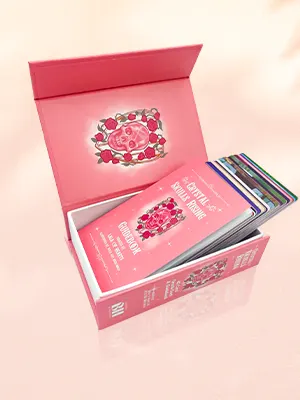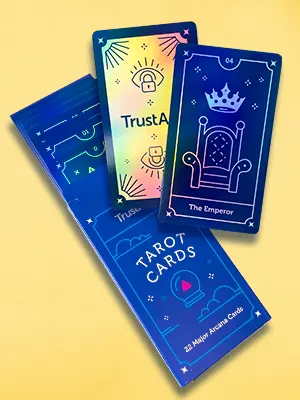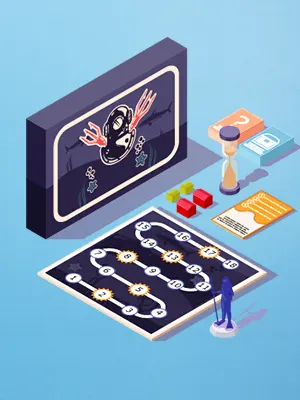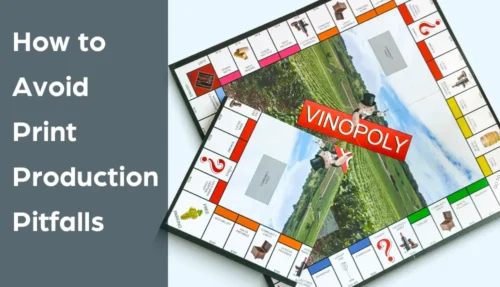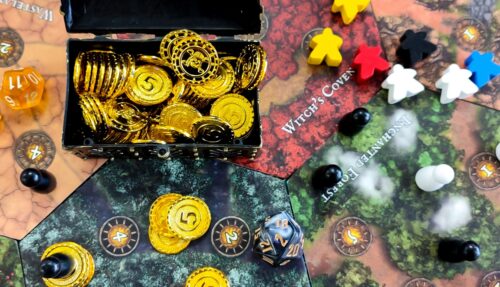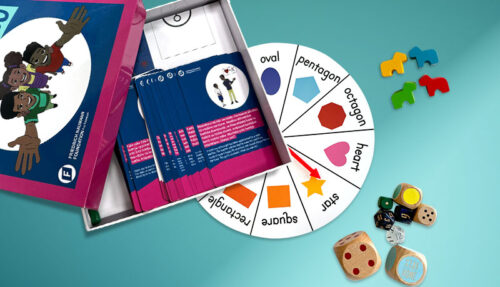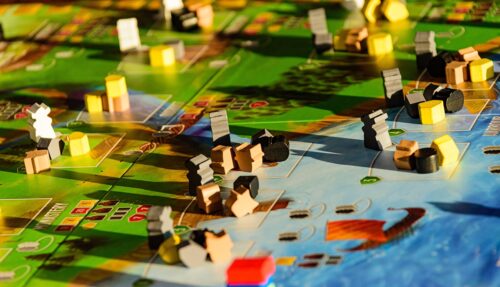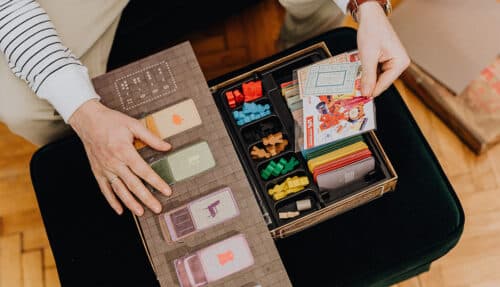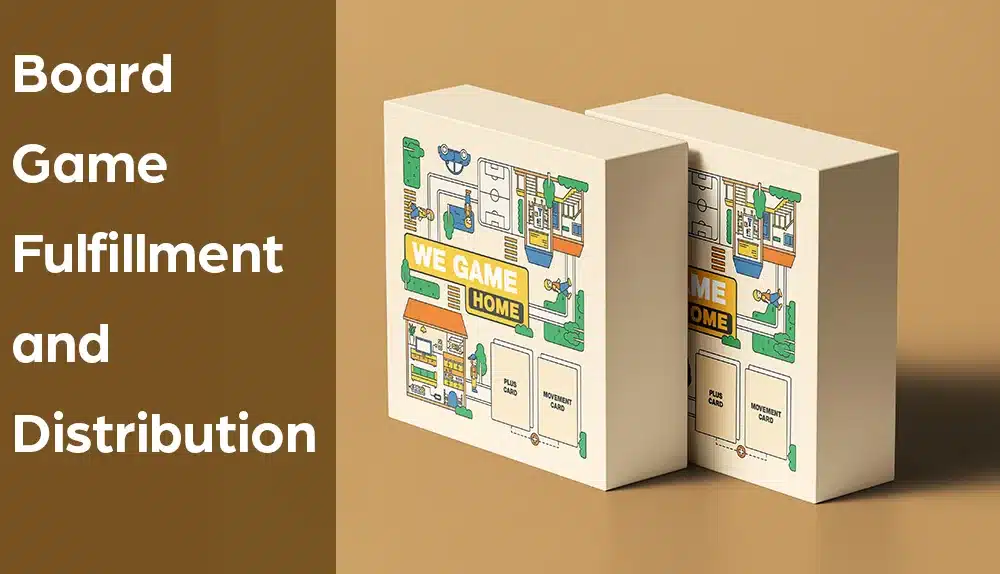
You’ve designed your game. We’ve printed it, manufactured the components, and collated everything into your game boxes. Now what?
Getting your custom board game into players’ hands is just as important as making it. Fulfillment and distribution are where first-time creators often lose time, money, or momentum. Whether you’re shipping out 500 Kickstarter rewards or supplying 2,000 copies to global retailers, logistics make or break your launch.
At QinPrinting, we work with publishers, creators, and businesses every day to coordinate final delivery. Here’s what you need to know to plan smarter and avoid common pitfalls.
Board game fulfillment and distribution at a glance
| Topic | Key Details |
|---|---|
| Main Fulfillment Models | Self-fulfillment, 3PL (third-party logistics), crowdfunding fulfillment centers, direct-to-retail |
| Common Shipping Methods | Air freight (fast, expensive), sea freight (slow, cost-effective), express courier (limited quantities) |
| Packaging Needs | Shrink-wrap, inner box protection, corrugated shipping cartons, palletization |
| Labeling Requirements | SKU barcodes, carton counts, region codes, customs documentation |
| Inventory Management Tips | Batch labeling, reorder buffers, split warehousing, print batch tracking |
| QinPrinting Services | Final assembly, box packing, shrink-wrapping, labeling, cartonization, freight coordination |
Choose the right fulfillment model
Fulfillment is how your product reaches players. There’s no single best method. Your choice depends on quantity, geography, timeline, and business goals.
- Self-fulfillment works if you’re shipping fewer than 300 units and want direct control. But it’s labor-intensive.
- Third-party logistics (3PL) companies store and ship your product for you. They’re ideal for larger volumes and ongoing sales.
- Crowdfunding fulfillment centers like Quartermaster or Spiral Galaxy specialize in batch reward fulfillment.
- Direct-to-retail means you ship in bulk to stores or distributors who handle customer sales themselves.
Some platforms can integrate directly with fulfillment centers to streamline reward processing. It’s also helpful to check whether your fulfillment partner offers customs-prepaid (DDP) options, which reduce friction at delivery.
QinPrinting helps plan carton sizes and labeling formats to match your chosen approach.
Understand your shipping options
Freight is one of the largest costs in board game production. Each method has trade-offs.
- Air freight is fast (7–10 days) but expensive. Use it if you’re short on time or shipping fewer than 500 kg.
- Sea freight is slower (35–45 days) but much cheaper. It’s best for large orders going to fulfillment hubs or warehouses.
- Express courier services like DHL and FedEx are suitable for samples, reviewer copies, or urgent small batches.
It’s often more efficient to consolidate shipments by region before departure, especially when fulfilling internationally. Always verify destination-specific restrictions, such as box size caps or labeling requirements, before arranging freight.
QinPrinting can quote shipping based on your project specs and destination. We’ll also advise on box weights and pallet loads to help minimize charges. We can prepare split shipments, so you can send part of your stock by air for immediate use while the rest follows by sea.
Package everything for protection and clarity
Proper packaging prevents damage and keeps logistics smooth. We recommend:
- Shrink-wrapping every unit to protect from scuffs and humidity
- Inner carton inserts or corner guards to protect heavier games
- Double-corrugated outer cartons for long-distance shipping
- Standard palletization for warehouse delivery, including plastic wrap and base labeling
Each carton should be clearly marked with:
- Game title
- Quantity per carton
- Total weight and dimensions
- Barcode or SKU
- Destination code (if using split fulfillment)
You should also confirm whether fulfillment centers require carton seals (like tamper-evident tape) or specific stacking instructions. If you’re shipping internationally, customs documentation such as commercial invoices and packing lists must be included and match declared values.
We’ll apply these labels during packing and can also include fulfillment center-specific labeling or packing slips.
Plan inventory and re-orders
You need a plan not just for the first shipment, but for what happens next.
Here’s how to avoid problems:
- Order a buffer—at least 5% over your known demand—to cover damage, lost packages, or returns
- Label batches clearly so you can track inventory by region or wave
- Choose print specs you can replicate in later runs for consistent branding
- Monitor reorder points—once you hit 25% remaining stock, start planning your next order
If you plan to sell your game through multiple channels, separate your inventory by channel (e.g., retail, online, direct sales) to prevent confusion. Tracking unit movement by batch date or print run can also help identify quality issues early.
QinPrinting keeps digital records of your print files and production data, so repeat orders are fast and accurate. If you need a reorder six months later, we’ll match the original specs exactly. We also support partial reruns. For example, reprinting just the rule book or one card deck if you need to update content mid-cycle.
Don't wait until the game is printed
Fulfillment decisions should happen before printing starts, not after. Box size, weight, labeling, and shipping format all affect how your game is produced.
For example:
- If your fulfillment partner requires specific carton sizes, we’ll match them during assembly
- If you’re pre-packing regional shipments, we’ll group games accordingly
- If you’re warehousing long-term, we can apply moisture-resistant coatings or packaging
Prepress planning should also account for inserts, flyers, or language variants that require kitting or versioning. Identifying your fulfillment model early also avoids problems like misaligned SKUs or unmarked cartons.
Working with QinPrinting early guarantees that your print specs and logistics are in sync. That’s the difference between a smooth launch and a last-minute scramble.
FAQs
1. Does QinPrinting handle warehousing or storage?
We are not a storage facility, but we can hold your printed games temporarily while arranging freight pickup or split shipments.
2. Can you send different quantities to different countries?
Yes. We support split international shipments and can pack cartons by destination region with appropriate labeling.
3. What's the best way to label cartons for fulfillment centers?
Most centers require a SKU, item description, count per carton, and weight. We can follow any custom labeling format you provide.
4. Do I need to arrange my own freight forwarder?
You can use your own forwarder, or we can manage freight directly through our trusted partners. We’ll coordinate loading and documentation either way.
5. How long does sea freight take from China to the US or Europe?
On average, 5 to 6 weeks door-to-door, including customs clearance and inland delivery.
6. Can you pack each unit with inserts or marketing flyers?
Yes. We offer kitting services and can insert flyers, promo cards, or personalized notes into each box before shrink-wrapping.
7. Will the outer cartons be strong enough for long-distance shipping?
Yes. We use double-walled corrugated cartons and can reinforce edges or add corner protection for heavy games.
Talk to us. We're here to help!
If you’re ready to get your board game out into the world, QinPrinting can help you print, pack, and ship it right. Whether you’re fulfilling a Kickstarter, supplying retailers, or restocking for e-commerce, we’ll work with you at every stage. Email us at [email protected] or call +1 951 866 3971 and tell us what you need.

